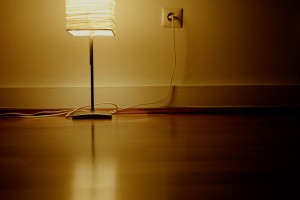Circadian Rhythm – The Biological Clock Affecting Your Performance
All living things, from bacteria, plants, animals to humans have their own biological cycle that oscillates around a 24 hour long period. It drives biological activities like ageing, metabolism, sleeping, hormone production, brain activity or cell regeneration.
This 24 hour cycle is called the Circadian cycle and the science behind it can prove very useful for anyone who wants to organize their workday more effectively.
7:30 A.M.
Cortisol level has increased and melatonin production stops. The body and brain can now fully wake up. (The exact time of natural waking up depends on daylight, temperature, habits and other factors.)
9 A.M.
Testosterone level is at its peak. Good time for more aggressive decisions or activities where some confrontation is required.
10 A.M.
Mental alertness level is at its highest around 10 AM. Do your most important task around this time.
2:30 P.M.
Your coordination is at the highest level. Best time for doing physical activities requiring fine motor skills.
3:30 P.M.
Fastest reaction time. Great for having a business appointment, giving speech or making some sales calls.
5 P.M.
Best time for doing hard physical activities which require the use of strenght
9–10 P.M.
The body prepares for sleep.
Now that we understand how our biological clock works, let’s talk about some practical strategies for increasing your productivity at work.
Here are some additional facts and tips based on the way we tick:
Performance varies during the day
Each one of us feels on the peak of his mental and physical strength in certain parts of the day and quite the opposite in others.
Research on biological rhythms proved that while each individual has his own, some similarities can be found. For example, some people are most productive early in the morning (the so-called early birds) and some people experience their productivity peak in the evening (the owls). But both groups have their mental alertness level at its highest around 10 AM.
Practical tip: Track your performance during your workday. When do you experience your mental peak? Understanding your daily rhythm will help you manage what times are best for you to tackle the most difficult tasks.
Working for more than 60 minutes straight is ineffective
Humans are biologically adapted to be performing short intensive activities (alternating with intense sessions of renewal) rather than long hours of work. If you start any activity requiring your attention, the first decline of concentration could come as early as after 15 minutes. The second decline comes after 45 minutes of continuous work.
Practical tip: Don’t work longer than 60 minutes (max 90 min) without a break. Your thoughts start to wonder around and your work begins to be ineffective. Give yourself 15-20 minute break.
Interruptions kill attention more than it seems
With each interruption at work you lose some time to gain your full concentration back. When accumulated, this idle time can take as much as 28% of your whole time at work.
Statistics say that most interruptions at work happen between 10.00 AM and 12.00 PM and then between 02.30 PM and 04.30 PM. Notice that the first wave of interruptions come at exactly the same time when you’re in your most productive period. Instead of fulfilling the largest amount of your daily tasks, you tackle less important issues.
Practical tip: Try to agree on a specific time when you make yourself available for your colleagues and clients (questions, calls or emails). It can be dealt with during times when your mind is in a more relaxed state, e.g. immediately after lunch. Check and respond to emails and phone calls just twice a day. Wait until you get a number of requests and solve them all at once.
Want to increase your productivity? Listen to your internal clock
It’s a big myth that those who work long hours are more productive. Employees who work too much without regular breaks or vacations are more prone to high blood pressure, stress, sleep disorders, burnout syndrome, apoplexy and heart attacks.
All the aformentioned aspects are civilization diseases. They are so widely spread in our western culture that we should take them as a warning sign to slow down the pace and start listening to what our bodies have to say. All while acomplishing more.
If you found this article useful, please hit the recommend button below so that others can benefit from it. Thanks!










Comments